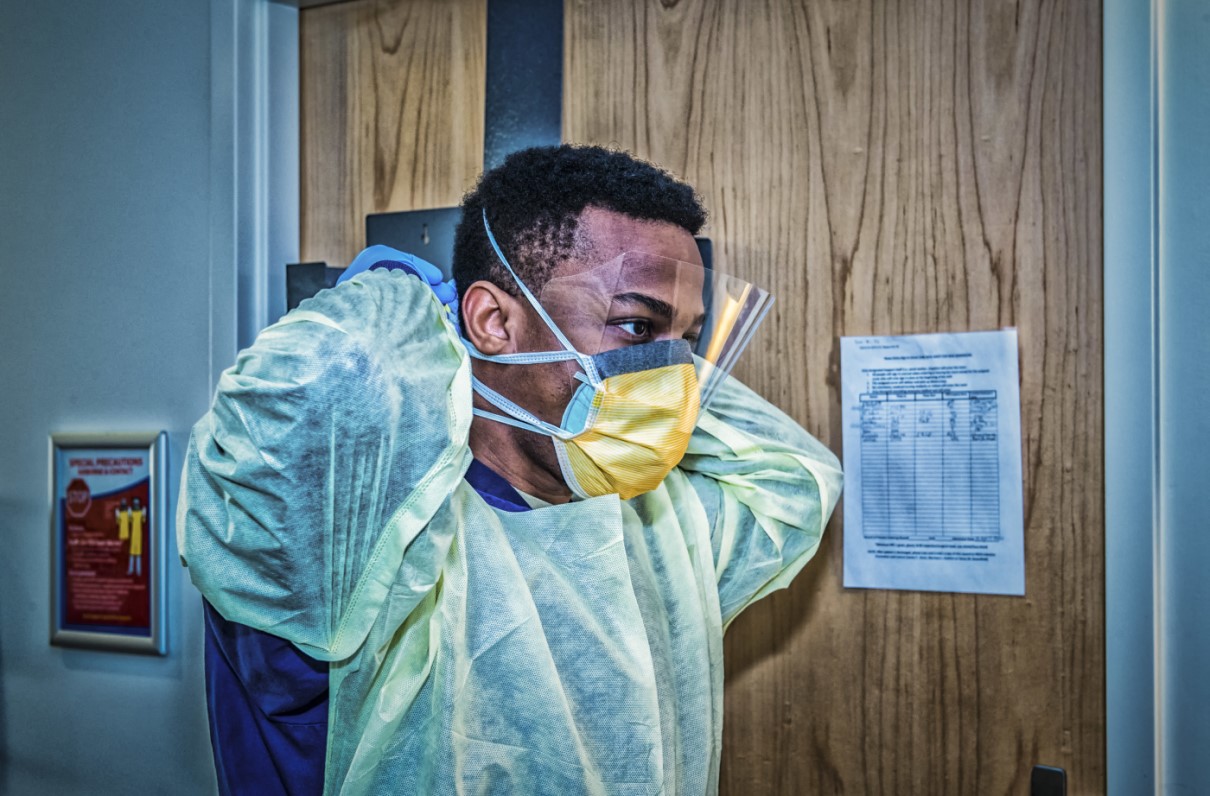By MOAA Staff
Protecting the health of the military and veteran communities – in the shadow of the COVID-19 pandemic and throughout planned changes to the military medical health system – was the primary focus of a wide-ranging video chat last week between MOAA President and CEO Lt. Gen. Dana Atkins, USAF (Ret) and Rep. Mark Takano, the Chair of the House Committee on Veterans’ Affairs.
Takano invited Atkins to take part in a series of video chats being held with leaders of military and veteran service organizations. The conversation covered active, reserve, and retired concerns; touched on military and VA medical care; and dealt with pandemic response. The full video is below:
Asked about key MOAA member concerns, Atkins said the biggest remains with military medical care – specifically, plans to overhaul the military health system that could affect the access to high quality care for 200,000 beneficiaries.
“Many of our veterans, particularly retired veterans, have found themselves in locations, by choice, that offer a medical treatment facility,” Atkins told Takano (D-Calif). “The big concern now is an ongoing effort from DoD and the Defense Health Agency to modify the military medical treatment facilities (MTFs).”
Plans to close or downsize dozens of MTFs “force the beneficiary population to kind of go out into the community” for their care, Atkins said. He added that MOAA believes DoD and the Defense Health Agency have not “done the appropriate assessment of these communities to absorb that patient population” – a belief borne out in a recent Government Accountability Report that found multiple issues with DoD’s analysis.
“The Committee on Veterans' Affairs and Armed Services Committee are going to have to take a closer look at how TRICARE and medical treatment facilities can better respond to the needs of veterans in the midst of a pandemic, too,” Takano said in a news release about the discussion.
COVID-19, VA Care, and More
Takano also outlined the committee’s work to ensure VA continued providing updated statistics on COVID-19 cases among patients and staff, to include a breakout of minority populations.
“We’re pressing for more transparency throughout this crisis. And what’s more important right now is that we know what VA absolutely needs to keep their staff and their veteran patients safe,” he said.
Atkins praised VA’s “remarkable strides at making their facilities more welcoming than they ever have been in the past” as well as the department’s improvements in mental health treatment and telemedicine opportunities.
[RELATED: VA to Resume In-Person Compensation and Pension Exams at 20 Locations]
Other topics discussed included:
- The need to expand benefits under the Civilian Health and Medical Program of the Department of Veterans Affairs, commonly known as CHAMPVA, to cover the small, vulnerable group of adult children of veterans who are permanently and totally disabled, have died of a service-connected disability, or died on active duty and did not qualify for DoD’s TRICARE program. Learn more about this issue here.
- Concerns over Reserve Component members receiving earned benefits, especially in the wake of a recent push to ensure National Guard members weren’t left one day short of qualifying for some federal benefits.
- The need to improve veteran job training opportunities, especially during the economic downturn. “In the financial turmoil our nation’s facing right now, what can we do to get veterans back into the workforce?” Atkins said. “In some cases, that’s retraining.”
Learn more about recent MOAA advocacy efforts here.
Stay Informed
It’s more important than ever to make sure you’re in the know and your military benefits are protected.
